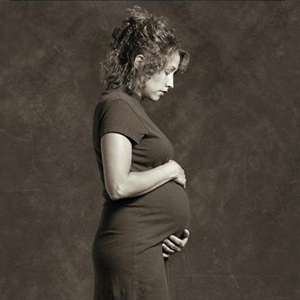If you've recently become pregnant, you may have noticed a burning sensation in your chest and throat after eating. Before you start to freak out, you should know that this is likely a simple a case of acid reflux, or heartburn, and that many women experience it for the first time during a pregnancy.
What's the deal? Well, during pregnancy, the placenta starts to produce the hormone progesterone, which your body uses to relax the muscles of the uterus. Unfortunately, it also relaxes the valve that separates the esophagus from the stomach, which allows gastric acids to seep up into the esophagus, causing that burning sensation you've been feeling. Also, when your baby grows bigger later on in pregnancy, your abdominal cavity will become crowded and the gastric acids might be pushed up into the esophagus.
Acid reflux and other gastrointestinal discomforts often occur during the second half of pregnancy, coming and going until your baby is born. Annoying? Yes. But luckily, there are actually a lot of ways you can help ease the issue.
To start, try to avoid eating and drinking foods and beverages that cause discomfort. A few common culprits are carbonated drinks, caffeine, chocolate, acidic foods like citrus and spicy or fried foods. It also helps to avoid eating big meals – instead, munch on several smaller ones and take your time to chew thoroughly.
To treat the symptoms, over-the-counter medicines like Pepcid AC and Zantac are generally safe for pregnant women. Dr. Anish Sheth, a gastroenterologist and assistant professor of medicine at Yale University, told FOX News that these H2 receptors work by shutting off the production of acid in the stomach. Try to take them a half-hour before meals or bedtime.
If you're still having issues, speak to your OBGYN and see what options are available. Remember, your doc wants the baby – and you! – to be as comfortable as possible throughout the pregnancy.
